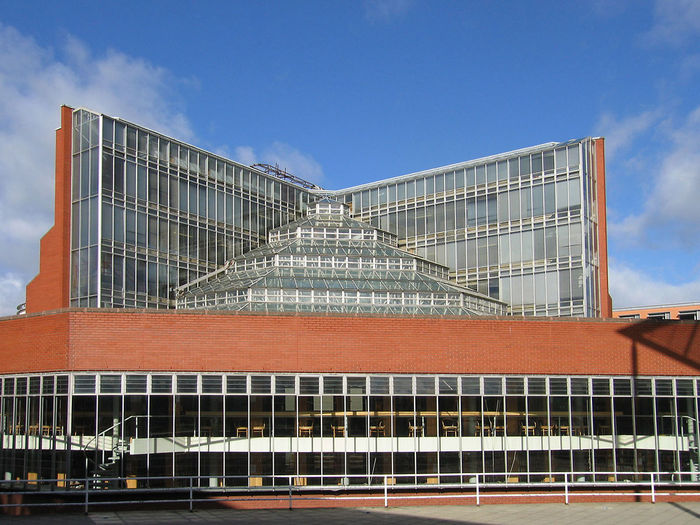Glad to be History’s ‘guinea pig’
While far from perfect, Aenghus Hughes believes focusing on the flaws misses the point of the new History tripos

If I had a pound for every time I’d been told my fellow first-year historians and I were “guinea pigs”, I would not have had to reapply for student finance. We were almost constantly reminded that we were the first group to undertake the university’s new Historical Tripos, introduced for Michaelmas 2022 as a replacement for a degree that had undergone little-to-no changes for decades.
In an institution as old as Cambridge, it’s understandable that this change has not been welcomed entirely with open arms. The innovations brought in with the new tripos have rankled some, and the transition has by no means gone through incredibly smoothly. New guidelines were often lost in translation, with one of my supervisors treating 1500 words as a hard limit for essays, while another encouraged us to go over it.
Easter Term’s Sources paper was the most egregious instance of this. Little instruction was given as to how source essays should be written, and we were discouraged from asking for any sort of help, for fear of ruining the blind marking aspect. Not to mention, issues like this particularly affected joint-tripos students, who had to juggle messaging from multiple, often uncoordinated departments.
Whilst a lot of these critiques are reasonable, is it right to always bring up the negatives? From second-years talking about how “glad” they are to be doing the older tripos, supervisors grumbling about the lack of clear communication, and all this talk around first years being “guinea pigs”, it seems as if we’re being subjected to some torturous lab trial by a maniacal scientist. But I believe this characterisation diminishes the aim of shaking up the tripos in the first place.
“Whilst a lot of these critiques are reasonable, is it right to always bring up the negatives?”
For a start, the scale of study has massively expanded, covering more than has ever been touched before. The world beyond Europe is no longer an afterthought, as papers covering the modern histories of the Caribbean or The Global South provide long-overdue opportunities to study areas in depth that the old tripos either skimmed over, or completely ignored. The old Political Thought papers now cover slavery, colonialism and Islam, going some way towards dislodging traditionally-held views about the superiority of Western thought in the discipline. Decolonising the curriculum cannot stay as mere rhetoric, and the changes brought in mark a firm acknowledgement of this.
But it’s probably not in these papers where the bulk of the criticism lies. The sense of being a guinea pig is most prominent in people’s minds with the Historical Thinking paper. And to be fair, words and phrases such as “methodology”, “historiography”, or “book report” don’t inspire as much excitement as the grand scale of the Outline Papers.
“A mixed-bag of a first year does not spell doom for the project entirely.”
However, as time went on, it didn’t feel like we were being given a rough deal. The new change brought in, including termly weeks-off in the timetable to focus on research for the paper, ended up feeling natural rather than experimental. Contrary to how they appeared, they were more than merely a week off. No supervisions or lectures meant I had time to get that important bit of reading I’d missed from the previous week done, or get ahead with some source work for my next essay supervision.
The reduction in stress and the wellbeing boost provided by this was invaluable during the breakneck Cambridge terms. With the university moving towards the introduction of a universal reading week, this is certainly a fruitful forerunner of a more measured workload for the average Cantab. Week Five certainly doesn’t feel so blue when you’re safe in the knowledge that Six will be entirely at your own pace.
Another “radical” change, having alternating essay/non-essay weeks during term, didn’t feel like a mere half-baked attempt to revolutionise the tutorial system. The broadness of the outline papers kept your attention going throughout the term even on non-essay weeks, being a far-cry from the traditional Oxbridge undergraduate experience of handing in poorly-researched haphazard essays every week. Whilst this very system has been a source of complaints for some, this feeling is not universal and varies across colleges, papers and people themselves.
At the end of the day, being a “guinea pig” doesn’t just mean experiencing all the flaws first-hand, it also means getting to see the potential of how great something can be. Assuming that all that comes from being part of the first cohort to study this tripos is chaos and uncertainty diminishes the excitement that myself and many others had in being able to lead Cambridge towards a better way of studying, and perhaps a better way of studying generally.
It may not have been perfect, but a mixed-bag of a first year does not spell doom for the project entirely. We have had the chance to study a better, broader version of history at Cambridge than ever before. For this, I’m more than happy to have been a guinea pig.
 News / CUP announces funding scheme for under-represented academics19 December 2025
News / CUP announces funding scheme for under-represented academics19 December 2025 News / Cambridge welcomes UK rejoining the Erasmus scheme20 December 2025
News / Cambridge welcomes UK rejoining the Erasmus scheme20 December 2025 News / SU reluctantly registers controversial women’s soc18 December 2025
News / SU reluctantly registers controversial women’s soc18 December 2025 Film & TV / Timothée Chalamet and the era-fication of film marketing21 December 2025
Film & TV / Timothée Chalamet and the era-fication of film marketing21 December 2025 Comment / Yes, I’m brown – but I have more important things to say22 December 2025
Comment / Yes, I’m brown – but I have more important things to say22 December 2025









